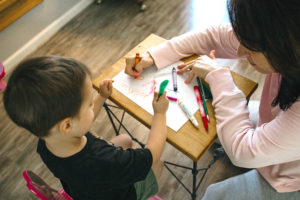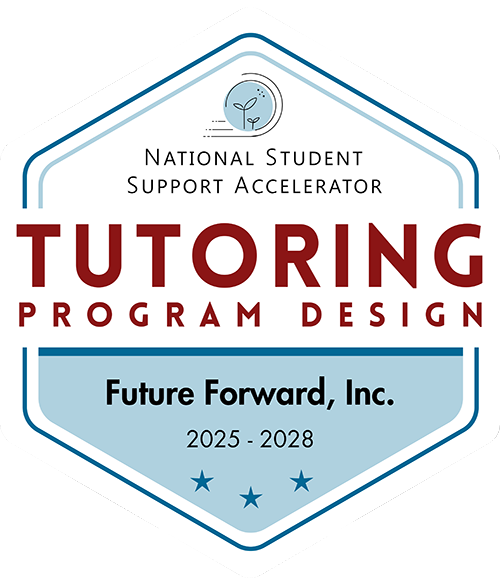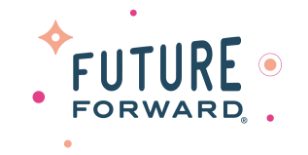Multiple new studies confirm impact
Future Forward successfully pairs one-on-one tutoring with family engagement
December 1st, 2020
 MADISON, Wis. — Early literacy nonprofit Future Forward released two more studies illustrating the efficacy of its intervention for kindergarten-through-3rd-grade readers. These recently published data align with previous research showing positive results from Future Forward’s methods.
MADISON, Wis. — Early literacy nonprofit Future Forward released two more studies illustrating the efficacy of its intervention for kindergarten-through-3rd-grade readers. These recently published data align with previous research showing positive results from Future Forward’s methods.
Socially Responsible Evaluation in Education (SREed) at the University of Wisconsin-Milwaukee previously found the program model to have positive impacts on literacy, reading achievement, and school attendance, and continues to report positive outcomes for the 2019 – 2020 school year despite COVID preventing full implementation and requiring program adjustments.
The newest study tracked 222 program participants at 12 elementary schools located in Wisconsin and South Carolina. The report (available here) includes comprehensive information on processes, approach, and pivotal lessons learned during the pilot year of this three-year study. Also, Future Forward students attended school more regularly (in early-2020, prior to shutdown); and teachers anecdotally reported that Future Forward students remained more engaged in learning than peers.
Additionally, the Journal of Education for Students Placed at Risk published the results of a randomized control trial, which shows “statistically significant positive impacts“ on literacy development and school day attendance from Future Forward’s implementation program model. A noteworthy finding demonstrated students who are in the program for more than one school year experience the most significant benefit in the first year of the program. Also, the impact was found to be greatest for students with the greatest need for additional literacy support (more here).
“For everybody in education – from students, to parents, teachers, and administrators – it’s been a year without perfect answers,” noted Future Forward executive director Kate Bauer-Jones. “Despite many challenges of late, we’re proud of what our continued research demonstrates regarding the program’s effectiveness. What we’ve recently been able to set-up and accomplish in this short and difficult time continues to promise positive evaluation results, and we’re excited about helping many more students with the Future Forward model through this school year and in upcoming years.”
Review further Research & Evidence here.

